At LifeSmartConcepts, LLC, our caregivers embody the essence of family values, ensuring that each client feels both happy and secure in their daily lives. Located in Denver and serving surrounding areas like Aurora, Littleton, and Parker, we offer unparalleled companion care and lifestyle management services tailored for older adults. Our commitment is unwavering; whether it's day or night, we are always ready to assist, treating our clients with the same dedication and warmth as if they were our own family. Discover what a day in the life of our compassionate caregivers looks like and how they make a significant difference in the lives of those they serve.
-
How LifeSmartConcepts Treats Clients Like Family: A Day in the Life of Our Caregivers
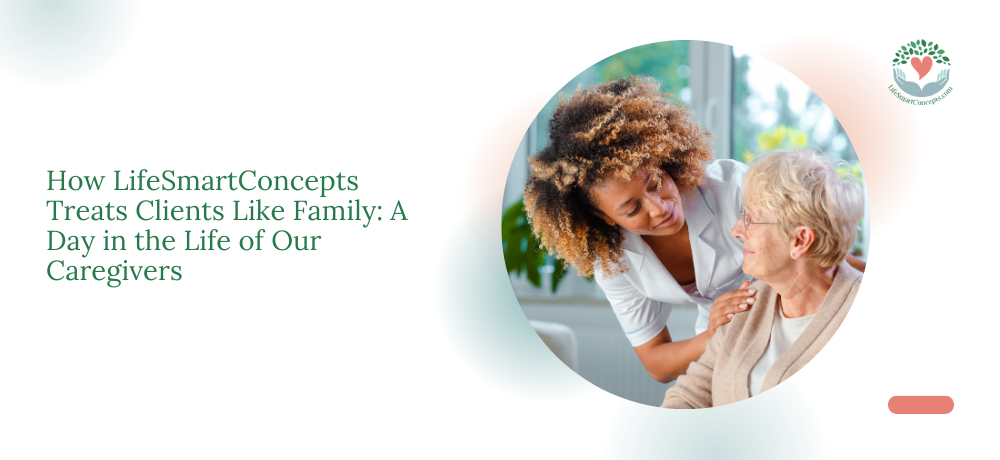
CLICK HERE TO READ THE FULL ARTICLE »
-
Top Lifestyle Management Tips for Older Adults in Denver and Surrounding Areas

Discover the essential lifestyle management strategies designed to enhance the quality of life for seniors in Denver. At LifeSmartConcepts, LLC, we understand the unique needs of older adults and provide personalized companion care services that treat each client like family. Our comprehensive approach ensures seniors feel happy, secure, and supported, whether they reside in Denver, Aurora, Littleton, Parker, or surrounding areas. Dive into our expert insights and learn how to effectively manage daily routines, health, and social connections to promote a fulfilling and independent lifestyle for seniors.
CLICK HERE TO READ THE FULL ARTICLE »
-
A Comprehensive Resource for Caregivers: Enhancing Senior Companion Care

Caring for older adults is both a profound responsibility and a deeply rewarding experience. The journey of a caregiver is filled with unique challenges, yet it also presents opportunities to make a meaningful impact in the lives of seniors. At LifeSmartConcepts, LLC, we recognize the dedication required to provide exceptional companion care and lifestyle management services, and we are here to support you every step of the way.
CLICK HERE TO READ THE FULL ARTICLE »
-
The Importance of Companion Care for Seniors: Enhancing Quality of Life

Companion care is an essential service for seniors in Denver, offering a vital support system that enhances their quality of life. LifeSmartConcepts, LLC specializes in providing compassionate and personalized senior companion care services that treat clients like family. Whether it's day or night, our dedicated team is always ready to meet the needs of older adults, ensuring they feel happy and secure. Discover how our tailored companion care solutions can make a significant difference in the lives of seniors, fostering independence while providing the comfort and security they deserve.
CLICK HERE TO READ THE FULL ARTICLE »
-
Something to consider…… The Importance of Staying Connected to Family and Friends in the New Year

As we step into 2025, the new year presents us with an opportunity to reflect on our relationships and strengthen the bonds that matter most. In an age where digital communication is at our fingertips, it can be easy to take family and friends for granted. But for many older adults, staying connected with loved ones can be a challenge. Whether it's due to distance, busy schedules, or simply the demands of modern life, staying in touch is often easier said than done. In this post, we’ll explore why staying connected is so crucial for older adults and how tools…
CLICK HERE TO READ THE FULL ARTICLE »
-
5 Types of Care for the Elderly

Discover the essential care options for the elderly with our latest blog post, "5 Types of Care for the Elderly." We delve into various care services including in-home personal care, assisted living, and specialized memory care, offering insights on how each type supports the unique needs of older adults. Learn about the benefits of companion care provided by LifeSmartConcepts, LLC, where we treat your loved ones like family. This guide is a must-read for families in Denver and surrounding areas looking to find the best care solution.
CLICK HERE TO READ THE FULL ARTICLE »
-
What Is Companion Care? Types And Benefits

Discover the essence of companion care in our latest blog post, "What Is Companion Care? Types And Benefits." Learn about the different forms of companion care available and how they can significantly enhance the quality of life for older adults. We delve into the advantages of having a compassionate companion, from social interaction to assistance with daily activities. This essential guide is perfect for families considering companion care for their loved ones in the Denver area and beyond.
CLICK HERE TO READ THE FULL ARTICLE »
-
Finding the Right Senior Travel Companion

Exploring new places doesn't have to slow down with age, especially when you have the right travel companion. At LifeSmartConcepts, we understand the unique needs of senior travelers and provide companions who are not just caregivers, but also friends. Whether you're looking to visit old sites or discover new ones, our companions ensure safety, comfort, and companionship throughout your journey. Learn how to choose the perfect travel buddy for your next adventure in our latest blog post.
CLICK HERE TO READ THE FULL ARTICLE »
-
The Importance of Companion Care for Seniors: Enhancing Quality of Life
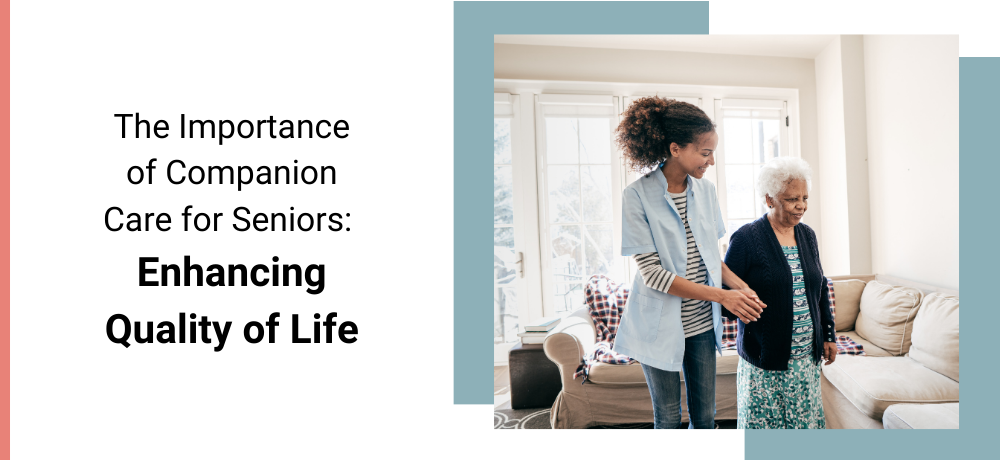
In the golden years of life, seniors deserve the utmost care and companionship. As aging gracefully becomes a shared goal for many, the significance of Companion Care, Home Health Care, Home Care, Skilled Nurses, and Caregivers in enhancing the quality of life for seniors cannot be overstated. In this comprehensive blog post, we will explore the world of senior care and the role it plays in nurturing happier, healthier lives for our beloved elderly.
CLICK HERE TO READ THE FULL ARTICLE »
-
holiday cheer

It's never too late!! In a world buzzing with digital interactions, we often yearn for genuine connections that transcend the virtual divide. Most importantly, as the festive season approaches, there is still time to rediscover the magic of human connection through the timeless tradition of holiday greeting cards. These tangible expressions of holiday warmth go beyond the screen, bringing: A touch of authenticity to our disconnected world. Power of personal connection in a world often defined by pixels. Thoughtful reminders that genuine relationships matter. Please join me in embracing the joy and sincerity of holiday greeting cards, creating moments that linger far beyond the festive season. Maya Angelou…
CLICK HERE TO READ THE FULL ARTICLE »
-
Choosing the Right Companion Care Provider: Factors to Consider When Selecting a Caring and Reliable Companion for Your Loved One
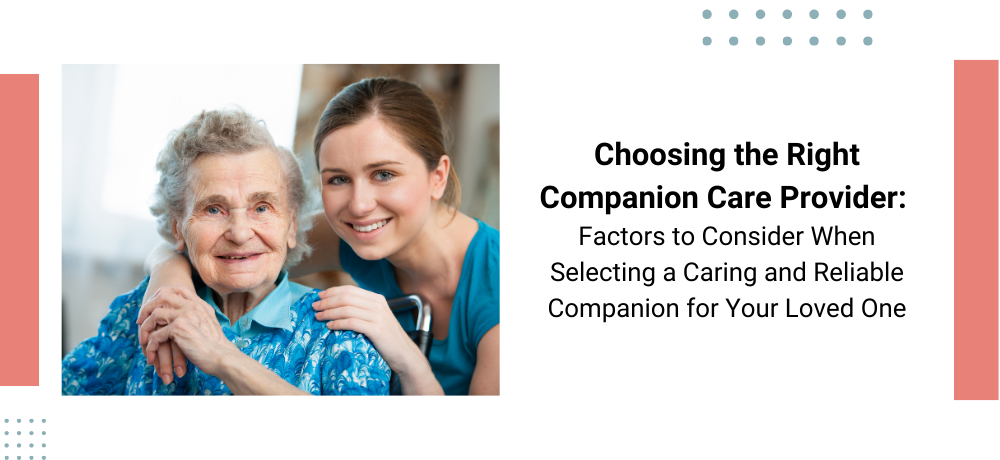
When it comes to ensuring the well-being of our elderly loved ones, making the right choice in companion care services is paramount. At LifeSmartConcepts, LLC, we understand the importance of selecting a companion care provider that offers not only professional support but also genuine care and compassion. In this comprehensive guide, we'll explore the factors you should consider when choosing companion care services, home health care, home care, skilled nurses and caregivers, and medical assistance and support. Our goal is to empower you with knowledge so that you can make an informed decision that truly benefits your loved one's quality of life.
CLICK HERE TO READ THE FULL ARTICLE »
-
The Role of Home Health Care: How Skilled Nurses and Caregivers Provide Medical Assistance and Support at Home
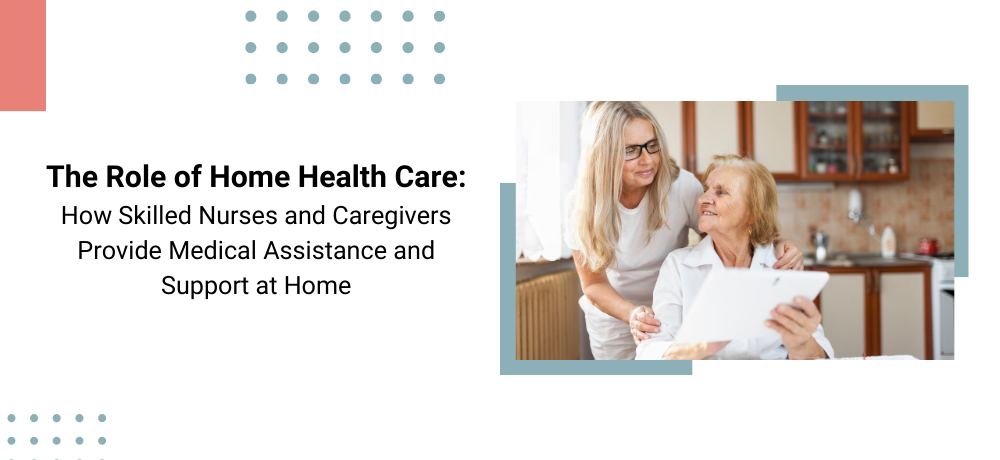
In today's fast-paced world, where everyone seems to be constantly on the move, taking care of our loved ones, especially the elderly, can become a challenge. The demands of work, family, and other responsibilities can make it difficult to provide the level of care and attention that our aging family members may require. This is where home health care, home care, skilled nurses, and caregivers step in to bridge the gap. In this comprehensive guide, we'll delve into the world of home health care and explore how skilled nurses and caregivers play a crucial role in providing medical assistance and support to those in need.
CLICK HERE TO READ THE FULL ARTICLE »
-
Something to Consider…
CLICK HERE TO READ THE FULL ARTICLE »
-
Losing Weight After 60

Maintaining a healthy weight becomes increasingly important as you age, but losing weight after 60 can be difficult. Changes to your body and metabolism combined with other factors make weight loss no small feat. But there are still plenty of steps you can take to make it happen, and diet recalibrations and lifestyle changes may be the key.
What Makes Weight Loss After 60 Hard?
Losing weight in your 60s and beyond can be a serious challenge. Your body simply doesn’t function the same way it did decades ago. Weight loss, as a result, is far from effortless.
Factors that contribute to difficulty losing weight include physical differences from older age and common situational and lifestyle changes that occur in retirement.
CLICK HERE TO READ THE FULL ARTICLE »
-
Boosting Well-being: 13 Benefits of Home Exercise for Seniors
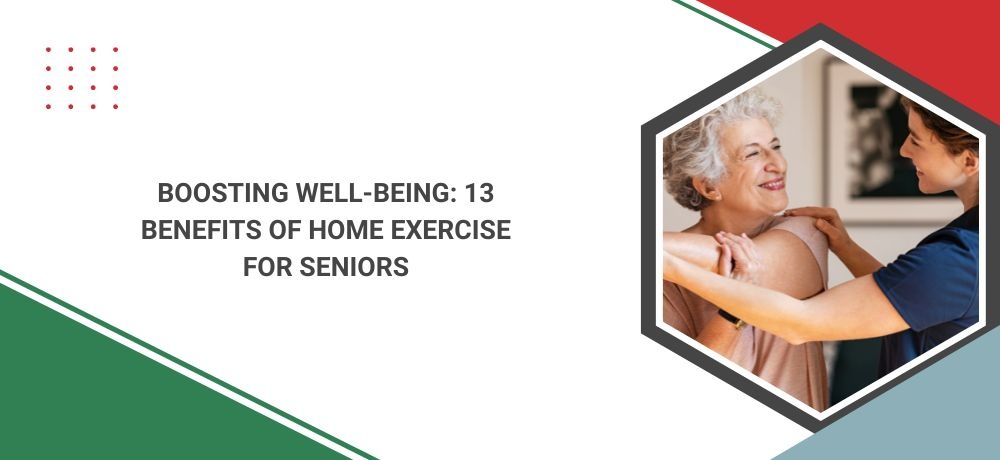
Staying physically active is essential for people of all ages, and it becomes even more crucial as we grow older. Regular exercise offers a wide range of benefits that contribute to overall health, mobility, and well-being, especially for seniors. In this blog post, we'll explore the numerous advantages of home exercise specifically tailored for seniors.
CLICK HERE TO READ THE FULL ARTICLE »
-
5 Times Caregivers Should Use Respite Care
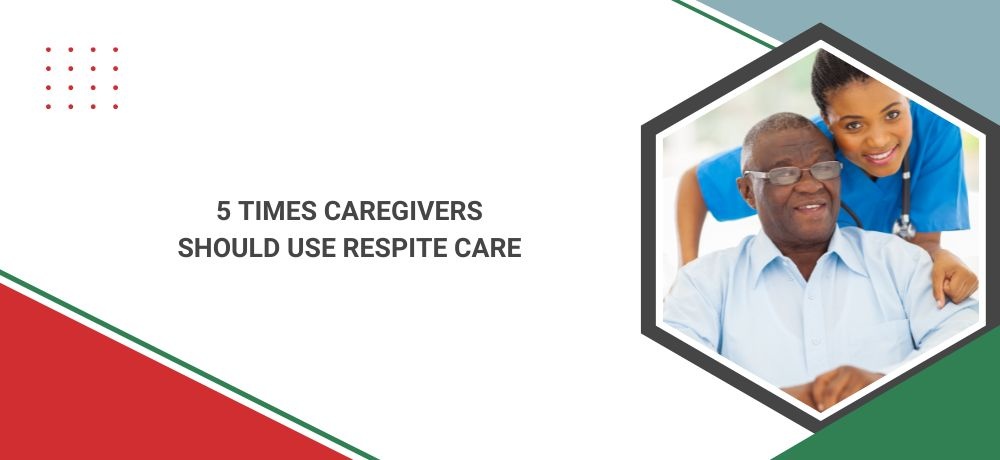
Being a caregiver is a rewarding yet challenging role that requires dedication, time, and energy. As a caregiver, it's crucial to prioritize your own well-being and ensure you have the support you need. Respite care offers a temporary break for caregivers, allowing them to recharge and take care of their own physical and emotional needs. At LifeSmartConcepts, LLC, we understand the importance of respite care for caregivers. In this blog, we'll explore five times when caregivers should utilize respite care to maintain their own well-being and continue providing the best care for their loved ones.
CLICK HERE TO READ THE FULL ARTICLE »
-
Importance of Elderly Care Services
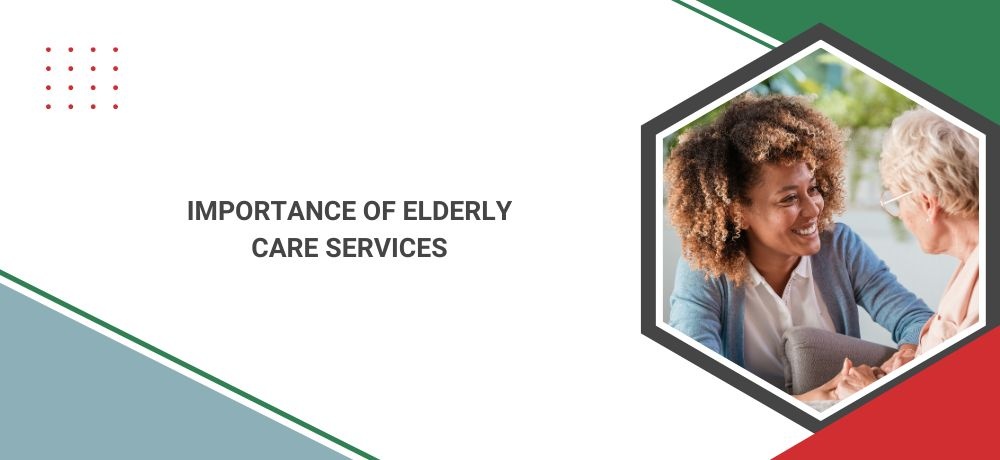
As our loved ones age, it becomes essential to provide them with the care and support they need to maintain a high quality of life. Elderly care services play a vital role in ensuring the well-being and happiness of seniors. At LifeSmartConcepts, LLC, we understand the importance of elderly care and the positive impact it has on seniors' lives. In this blog, we'll explore the significance of elderly care services and how they contribute to enhancing the overall health and happiness of older adults.
CLICK HERE TO READ THE FULL ARTICLE »
-
You cannot do a kindness too soon, for you never know how soon it will be too late
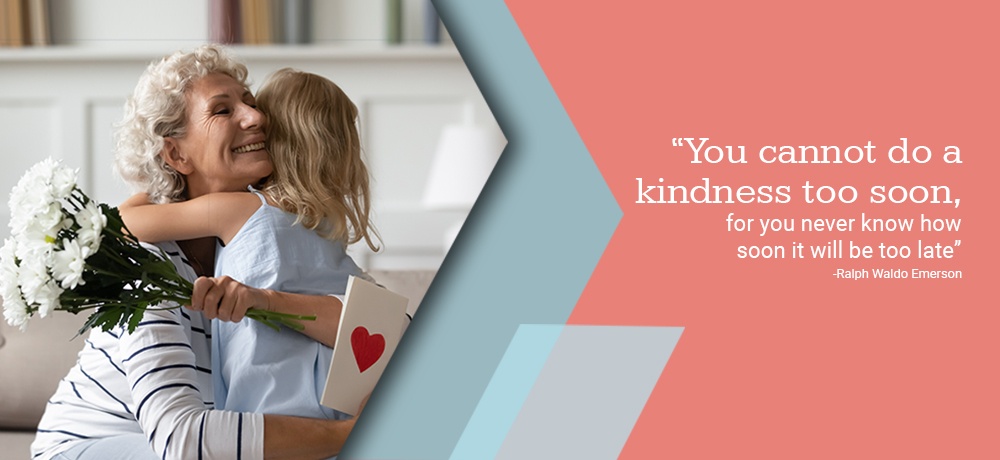
A friend recently shared the following story with me. I hope that you will be as moved by it as I was. May kindness be the signature of your life in 2023. As the story goes:
At the end of a busy day of passenger pick-ups, a city cab driver pulled up to an address at a small residence in a modest neighborhood. He honked and waited for his passenger. Nothing. He honked again. Nothing. Somewhat annoyed, he went to the door and rang the bell. From within, came a small voice saying "I'll be right there, dear." Shortly, a frail, neatly attired, elderly lady opened the door, dressed and ready to go with a suitcase at her side.
CLICK HERE TO READ THE FULL ARTICLE »
-
The Reality of Senior Care: Why More and More Families are Seeking Help
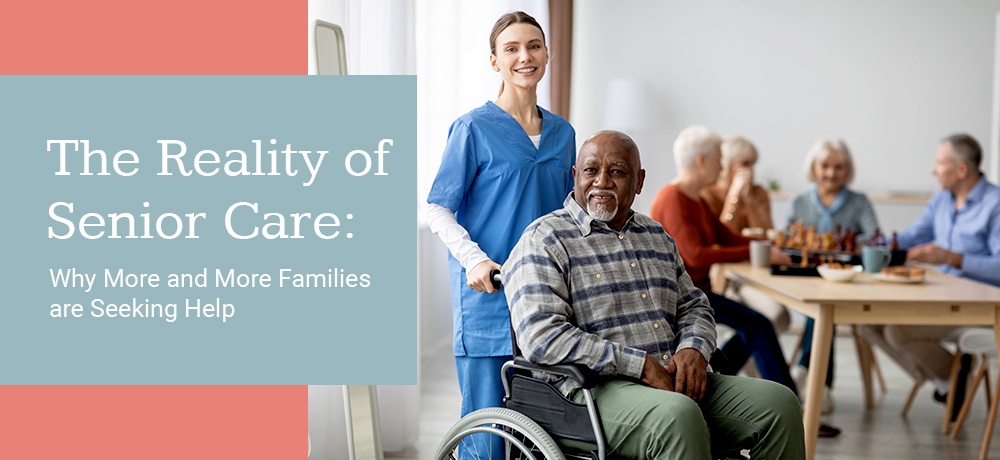
If you're among the majority of adult children in America, chances are you're providing some level of care for an aging parent. Perhaps it helps with driving to doctor's appointments or cooking meals. Maybe it's keeping an eye on their medications or managing their finances. Or, it could be something more substantial, like helping them bathe or dress. Whatever the level of care, it's likely that you didn't expect to be in this position at this stage in your life.
You're not alone. In fact, according to a recent study by the National Alliance for Caregiving and AARP, nearly half of all adults in the United States have provided care for an ill or aging family member in the last 12 months. And, as our population continues to age, that number is only going to increase.
CLICK HERE TO READ THE FULL ARTICLE »
-
5 Tips for Having the Senior Care Discussion with Your Parents
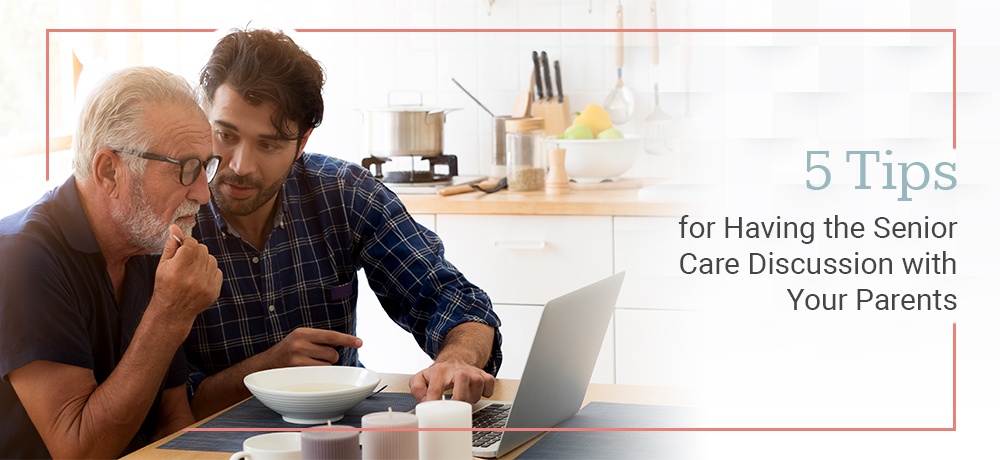
Discussing senior care with your parents can be a sensitive and emotional topic. You want to make sure that your parents are taken care of, but you also want to respect their autonomy and maintain a positive relationship. Here are 5 tips to help you navigate this difficult conversation.
CLICK HERE TO READ THE FULL ARTICLE »



















